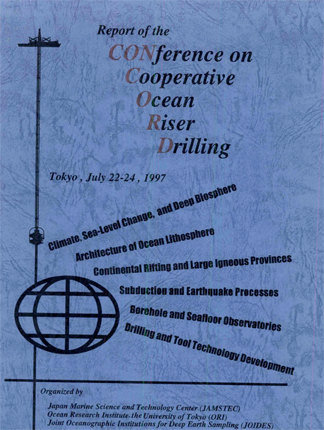Summary
 The Conference on Cooperative Ocean Riser Drilling (CONCORD) agreed that the understanding of major earthquake processes through direct observation and monitoring should be the first priority of a new riser drillship.
The Conference on Cooperative Ocean Riser Drilling (CONCORD) agreed that the understanding of major earthquake processes through direct observation and monitoring should be the first priority of a new riser drillship.
Over 150 leading international Earth scientists and drilling engineers reached a clear consensus on the need for a new generation deepwater drilling vessel, equipped with a riser, or riser-type system, that can circulate drilling fluids, provide well control, and thus allow access to deeper and more challenging Earth environments.
Participants identified a range of fundamentally important scientific problems that can be addressed only by drilling deeper into the Earth. Key problems identified further include:
- Searching for new species of ancient, but still living bacteria that lie deep within marine sediments and oceanic crust
- Extending the record of natural climate variability to at least 180 million years before present and the determination of the history of, and environmental conditions associated with significant past “greenhouse” climate events and related sea level change
- The record of past “super volcanic” events in the ocean basins, their relation to the dynamics of the deep Earth, and their impact on global climate
- The nature of oceanic crust, which constitutes two-thirds of the Earth’s surface, the dynamics of its formation and alteration, including drilling through the entire crust and into the upper mantle of the Earth
- The formation of continents, the break-up of the continents, and the evolution of their sedimentary basins along margins, many of which are rich in hydro-carbon deposits
Achieving many of these objectives will require installation of arrays of sub-surface deep-sea observatories that can monitor dynamic and evolving Earth.
Workshop Report (pdf)
